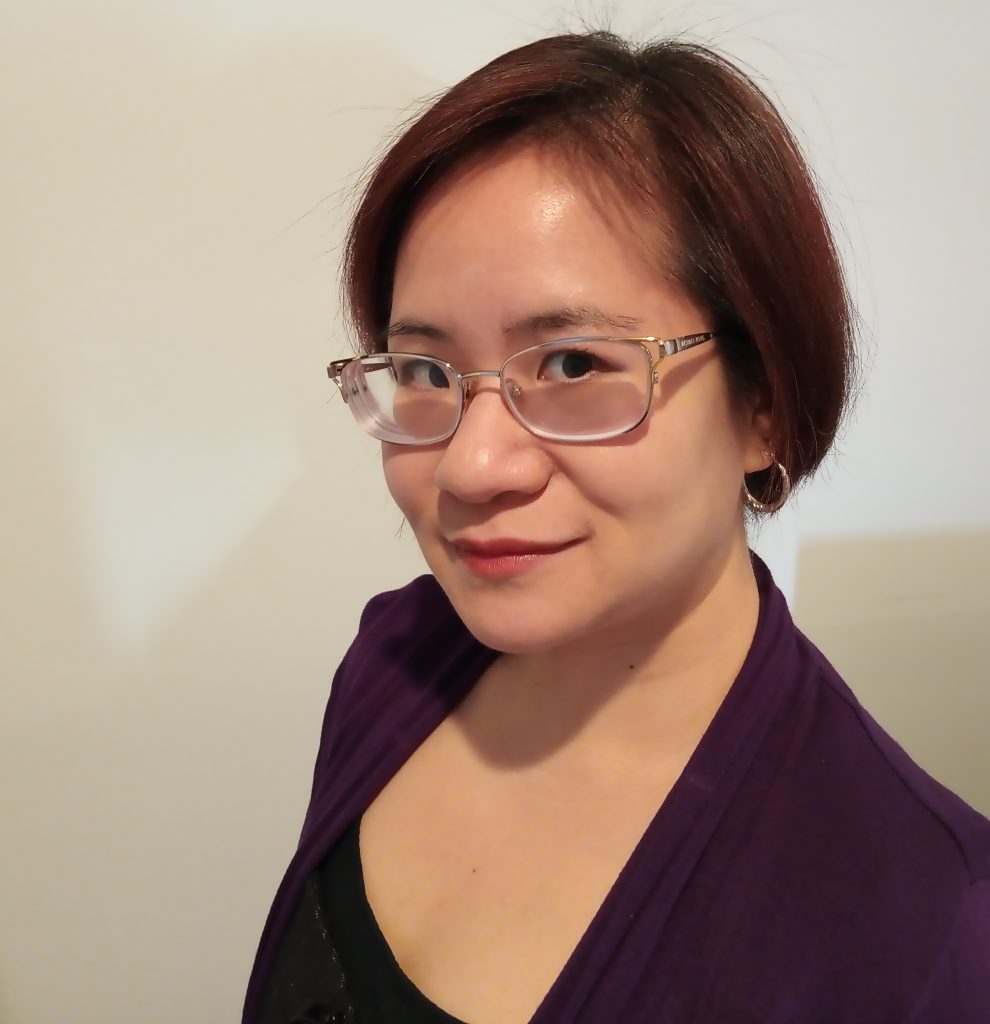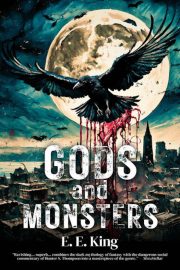Working with Your Career’s “Track Changes”: Advice from One BIPOC Editor
by Diana M. Pho
Introduction
The role of an editor in book publishing is shrouded in mystery. Perhaps it’s because our job faces dualistic scrutiny by writers. Editors are creative guides but also gatekeepers preventing you from getting published. Editors wield brilliant insights that strengthen the story, and they fight all of your artistic choices. Editors are your biggest advocates inside the publishing house, and they are blamed if a book flops financially or critically for failing to do their job. Faced with these (mis)perceptions, what is an editor’s job? My personal answer: editors are dedicated readers, chosen collaborators, imaginative improvisers, and keen business partners.
Writers of color, especially those who seek a spot in the Western English-speaking book world, also hope that by connecting with an editor who, perhaps, can empathize with their experiences, they’ll get some relief from the burdens of cultural explanation and possible misunderstandings that may crop up during this book-making journey. And, yes, having a fellow BIPOC editor or one with a shared background, can help. Any creative partnership, however, is more than that. The most effective editors are good communicators: people who can bridge the gaps of difference in a partnership and move alongside a writer to where the writer wants to be.
As an editor of color, I’m intimately aware of the grounded fears and hypothetical anxieties writers carry. I want to support marginalized writers in the same ways in which I have been so lucky to be supported as an editor by my publishers (not all BIPOC editors have that experience!). There is also navigation as a BIPOC editor in a very white, straight, and able-bodied publishing world; while many of the authors I’ve worked with overlap with my background in some way, many don’t.
Here are some truths I’ve learned about how BIPOC editors might navigate (or ease!) expectations and challenges that arise from working with writers of different backgrounds. My little disclaimer: I’m speaking from experience of working at corporate, traditional publishing houses. I’ve spent 15+ years working for US-based publishers. If you are a freelance editor, working for a small or indie press or an academic or nonprofit publisher, or one based outside of the Western book world, what I say may not apply to you as much, if at all. But maybe there is still some common language to be found.
1) Clarify your professional expectations.
Editors are not just “the business side.” They are the creative end of the publishing house, presenting that Venn diagram to the publisher that displays a sweet spot of “What Is Art?” and “What is Basically Printing Money?” Yet writers don’t know how much of an editor’s daily job is working on their specific book, working with other authors, or doing the 1,001 other tasks that happen inside a house.
It’s important in all preliminary conversations with a writer that you set the tone for how you both will work together. Are you an acquiring editor who will pass along this book project to another editor for development? Are you a developmental editor who will be a writer’s main contact through publication? Are you a freelancer or a copy editor or a proofreader, whose duties are more limited in scope? Not to mention any preferred forms of collaboration and communication, aligning schedules, and the more logistical side. A writer should know what to expect from you.
2) We’re doing it for the culture – but don’t cave into the pressure.
The worst (and highest) expectation for marginalized editors and authors is that both may feel a weighty pressure pushing them toward success – not only for yourselves or professional futures, but even for your whole community. If the book wins, everyone wins! The author, the publisher, the readers, and the other editors who also want to acquire more books like this one. But if it flops, then it’s all on fire! A curse upon both your houses! Other BIPOC authors and their future books will suffer, and it’ll be harder to convince a publisher to acquire that type of book. I promise you, that’s your editor brain catastrophizing. That’s a lot of unnecessary pressure!! A hyperbolic theoretical! Yet I won’t lie when I say that many BIPOC editors feel this at some point.
The best thing I can promise a writer – especially another marginalized writer – is that I understand the anxiety. What I want to do is publish a book we can be proud of despite any other market forces or real-world catastrophes that may happen. At least for a hundred-odd moments, an editor and writer will find enough joys in the book-making process to make publication worthwhile.
3) It’s okay to have a work-life balance!
So, I get it: you want to give this particular book or author everything necessary for success. But that doesn’t mean no work boundaries – ones you place on yourself, especially. You don’t have to edit until midnight every night, or always be on call answering emails. You don’t have to repost on your personal social media all of your authors’ promotional posts. You can read books for fun, not for work. You can take time to do that hobby you love, and not always be reading submissions.
In addition, communicate your work habits with authors, such as mutually understood deadlines, or expected turnaround time from you on a request. Unlike nurses and IT engineers, editors don’t need to be on-call. Even if you can’t immediately provide an answer, it also never hurts to shoot a quick: “Got your email, and I’m working on it!” rather than have the other recipients wonder if it got lost in the Inbox Void. Polite nudges and check-ins are gold! Especially as you grow your list, remember that with great power, comes even greater time management.
4) A hard truth: you as an editor are most accountable to your boss, i.e., whoever issues the paycheck.
One thing that I wish editors talked more openly is the challenges of managing different power dynamics on the job. Authors see editors as their in-house advocates. On the other hand, editors are also beholden to their publisher’s expectations. If you are a freelance editor, the power dynamic is reversed, for the author is your client.
Authors might never consider how office politics factor into their editor’s daily life. More often than not, an editor might be handling proprietary issues in-house they can’t speak to their author about. BIPOC editors, in the worst-case scenario, may also face discrimination, microaggressions, or imbalanced pressure to succeed due to the systemic issues in their house. Effective editors will do their best to shield their authors from any bad situations. Authors should be educated to consider how a whole other work environment exists in an editor’s life outside their book. If an editor says their hands are tied on an issue it may just be the honest reality.
5) Intersectionality is key. Both author and editor are bringing something besides the viewpoint of their race to the table.
You don’t know everything. Neither does your writer. The combination of different backgrounds and experiences – you are a BIPOC editor working with a white writer, a gay editor working with another queer author, or a disabled editor with someone of a different disability – makes the artmaking together that much more interesting. As an editor, try to be aware of when you’re assuming something about a story, even if you share the same background with the author. Life experiences vary, and personalities are different. Learn with a flexible mind. Prepare to be wrong, to do your own research, or to question the writer to learn what it is important for you to know about XYZ.
6) Who is the author’s ideal reader?
When I look at a potential book project for acquisition, there are a bunch of buckets in my editorial brain that I need to fill: Things I love, Things that work well, and Things that would make the book right for my publishing house. Most of all, does the book present some deeper storytelling message or authorial intent that makes working on it worthwhile? That’s what I think of as “the heart of a story.”
But I’m not the writer! Certain things strike an emotional chord because, yes, I can relate to that thing too! Or cultural elements may go over my head entirely, and that’s okay! During the developmental process, the editor should be able to understand what is important to the writer for this story and helps present those elements in the most effective way possible.
Part of that creative process means also understanding who the author is writing for and why. If an author is keen on writing for their community as the ideal reader, that may change how a story is presented. For example, the choice of whether to translate words outside of standardized English. This could mean another language, or it could even mean slang or a specific dialect. While part of an editor’s job is to make sure the story can be understood, that does not always mean including a literal translation in the narration, or striking out words that might be “unfamiliar.” In this instance, what if the author’s “ideal reader” is some who already understands that language?
That understanding should be respected. Likewise, the writer can decide to explain words or ideas using context clues because they want to bring an outsider reader into that same cultural understanding. That’s a valid artistic choice too. It doesn’t have to be one or the other.
The important takeaway is that the editor and the writer should be on the same page about cultural nuances upfront, and who the author considers the book’s “ideal reader.” That way, the editor’s feedback can align a story’s effectiveness with its intended audience.
7) Harm reduction: anticipating bigots coming out of the woodwork.
Nazis, fascists, racists, misogynists, and people who spread hate are, unfortunately, a lived reality these days. That sucks.
Merely existing, never mind writing anything, can make marginalized authors a target. In an age of online abuse, writers may be terrified of people hurting them or their loved ones. The other lingering fear is that today’s world is wrestling with oppressive laws that can affect huge swaths of people. If your identity could be declared illegal under the eyes of the law, how can a sympathetic editor help?
Real talk: an individual editor might not be in the best position to provide an immediate solution, and many publishers may be reluctant to discuss the possibility of such attacks as a matter of legal liability. But the idea of having these hard conversations before disaster hits is a fair one. Hearing out the writer’s concerns going in, and taking their concerns seriously is just the first step, and the very least an editor can do.
What comes next depends on the support network provided by the house. Especially for any publishing house with an online social media presence and working with a larger sales team, it is smart and reasonable to have a preparedness plan and worst- case scenario, strategies in anticipation of an online or in-person attack, or a sudden change in the law that could affect an author’s books.
8) Build your solidarity networks to last.
One last hard truth that I have felt as a BIPOC editor: we are few and far between in the industry, and there’s a visceral type of anxiety when your author leaves you for another house or another editor, especially if that other editor is white or part of another privileged majority. Authors move on to other editors, other houses, and other projects. It’s a natural fact of publishing life! Honestly, though, in that particular circumstance, maybe you wonder: were you only a useful tool for a brief time? Did you not work well enough together, or hard enough? In an industry that undervalues creative labor in general, not just marginalized labor, a move like this can be a bitter pill to swallow.
However, that is why I especially advocate for keeping your professional contacts open. This can apply not only to someone from traditional publishing, but for editors hailing from indie, academia, or freelance realms as well. Know that there is never a lasting “no” on working together, just a “not for now.” At every stage in your career, look for three types of professionals to keep in your own network. The first are those who are on your level: such as fellow entry-level or new co-workers in your company, or editors you may meet at readings, conferences, or online. These are people whose careers grow alongside yours, who you can turn to as a support group, even if you don’t work in the same places anymore. The second type are your trusted mentors: seasoned colleagues who help train or advise your work, or perhaps industry people you connect with through informational interviews or writing organizations like SFWA or independent editorial organizations like the Editorial Freelance Association or ACES: The Society for Editing. Once you have stuck around for a while, the third type will eventually come into your life: the newbies. You’ve come a long way, padawan: now, it’s time to be a mentor! Maintaining a wide range of professionals in your life can be indispensable when it comes to figuring your next move, gaining insight through the grape vine, or catching up on the latest shop talk.
Ultimately, while being an editor can be one of the many roots supporting a writer’s journey, the editor’s path through the industry can branch out across the entire publishing canopy. And, it is solidarity building that will help grow the book world as a whole.

Author Bio
Diana M. Pho is a queer, Vietnamese-American independent scholar, playwright, and Hugo Award-winning fiction editor. Currently, she is Executive Editor at Erewhon Books. She has over fifteen years of experience in book publishing and podcasts, most prominently at the Tor Publishing Group and Realm Media.


